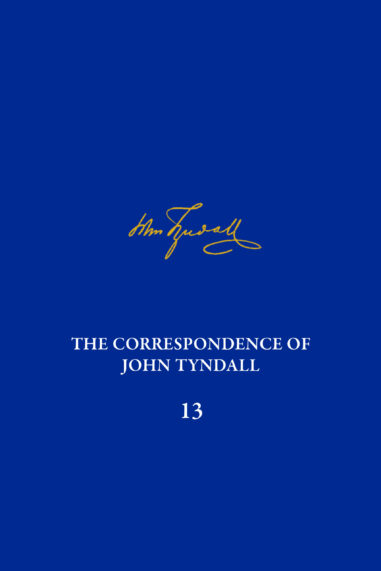The 476 letters in the thirteenth volume of The Correspondence of John Tyndall document the period from June 1, 1872, to September 28, 1873, much of which was consumed by Tyndall’s lecture tour of the United States. We meet him in the midst of the Ayrton affair, which saw Tyndall coming to the defense of his friend and fellow X Club member Joseph Dalton Hooker against the First Commissioner of Works, Acton Smee Ayrton, in an acrimonious dispute over the governance of the Royal Botanic Gardens, Kew. Tyndall’s tour of the United States was a rousing success by many measures, but he was not long on American shores before his well-documented skepticism of the efficacy of prayer stoked the waspish ire of the faithful. Tyndall’s return to England in mid-February 1873 saw him begin preparations for his 1874 Belfast Address, when he accepted the presidency of the British Association for the Advancement of Scienceand articulated a defense of materialism that scandalized many of his contemporaries. As we leave him in September 1873, Tyndall is engaged in sharp-elbowed jostling with Scottish physicist Peter Guthrie Tait in the pages of Nature over James David Forbes, whose theory of glacial motion Tait had defended against Tyndall’s attacks, in a scientific disagreement that evolved into a personal one. Amid the tumult of controversy, though, these letters reveal a man of science riding high on widespread esteem, wielding the influence it brought him with gusto, and moving with ease through the rarefied social and intellectual circles into which he had climbed.



